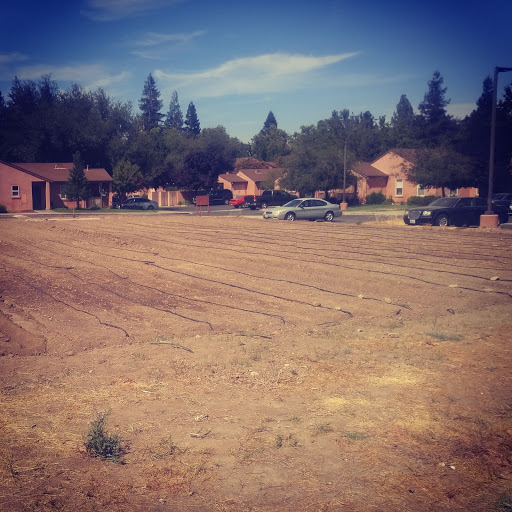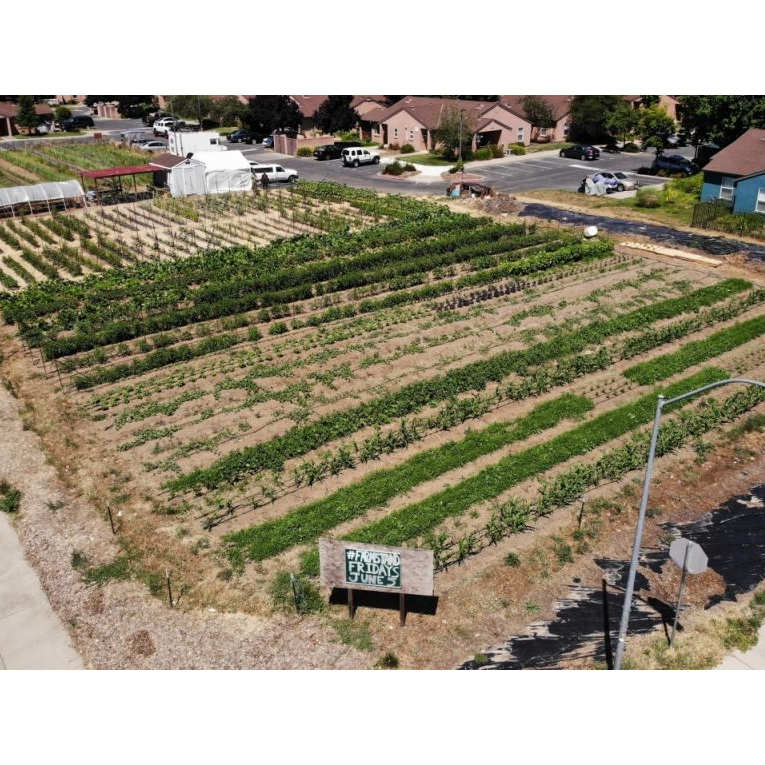Producer


We Grow, West Sacramento, CA*
Address: 700 Cummins Way West Sacramento, CA, 95605
Website: https://wegrowfarms.org/
About Us
In 2018, the seed of our vision was planted. We envisioned a community-grown farm that plays an active role in our local food system as we regenerate the land we cultivate. The West Sac Urban Farm program offered us an opportunity to break ground so we crowdfunded for offerings from friends, family and community members to cover startup costs. This watered our vision seed as it started sprouting. As our roots stretched out, we established connections with the community surrounding our urban site as well as local non-profits and markets. We adapted our crop plan to meet the needs of those we serve. Carefully tending to the soil and seeds, we stewarded the land piece-by-piece to bring it back to life and expand our impact each season. Our vision came into fruition.
We Grow is not only our name, it’s the guiding principle of our work. As it takes a collective effort to produce food, we also grow a deeper connection to the land and the natural world in the process…
When spoken into existence,
We Grow…
Food (as we help plants turn sunlight into nutrient dense fruits and vegetables)
Farms (as we regenerate vacant lots into productive farms)
Farm skills (as we learn and grow together)
Mentally (as we gain new knowledge every day interacting with nature)
Physically (as we cultivate, maintain and harvest the fruits of our labor)
Spiritually (as we become connected to the elements that sustain our lives)
Community (as food brings people together when we break bread)
We are a mission-driven farm committed to supplying high quality seasonal fruits and vegetables to the community surrounding our urban farm in addition to local markets and distribution programs. We also run a Community Supported Agriculture (CSA) program and summer farmstand every Friday.
We Grow is not only our name, it’s the guiding principle of our work. As it takes a collective effort to produce food, we also grow a deeper connection to the land and the natural world in the process…
When spoken into existence,
We Grow…
Food (as we help plants turn sunlight into nutrient dense fruits and vegetables)
Farms (as we regenerate vacant lots into productive farms)
Farm skills (as we learn and grow together)
Mentally (as we gain new knowledge every day interacting with nature)
Physically (as we cultivate, maintain and harvest the fruits of our labor)
Spiritually (as we become connected to the elements that sustain our lives)
Community (as food brings people together when we break bread)
We are a mission-driven farm committed to supplying high quality seasonal fruits and vegetables to the community surrounding our urban farm in addition to local markets and distribution programs. We also run a Community Supported Agriculture (CSA) program and summer farmstand every Friday.
Practices
Why eat store-ganic, when you can get more-ganic?
At We Grow Farms, we do more than grow just food. We practice ecological principles that enhance biodiversity, enrich soil health, conserve water, strengthen community, capture carbon and support our local economy. Every purchase and contribution empowers us with the ability to maintain a strong resilient food system.
Low Till to No Till: We lightly till new fields to loosen the soil and mix soil amendments as we bring it back to life. We then reduce our tilling each following season to minimize disturbance and maintain a healthy soil food web. This also helps keep carbon in the soil where it belongs instead of releasing into the air.
Conserve Water: We use drip irrigation to reduce water and fertilizer usage, prevent plant disease and soil erosion, as well as limit weed growth. Drip irrigation systems can be up to 90% efficient by preventing runoff and evaporation.
Vermicomposting: Our worms bins are teeming with composting worms that quickly break down our food scraps left over from processing the harvest. Their rich manure (castings) are then made into a liquid that feeds the soil life that support plant health.
Composting: By composting our plant material from the fields, we are able to reduce waste and pollution, cycle valuable nutrients back into soil, and keep carbon in the ground where it belongs. This is all fueled by the microorganisms breaking it down.
Polyculture and intercropping: Just like in nature, we grow a diverse variety of plants in the same field and sometimes in the same grow beds. This intensive approach helps keep the ground covered, keeps pest populations in check by disrupting their life cycles, as well as maintain high productivity in small spaces.
Protect pollinators: We plant native wildflower hedgerows on our fields to enhance the pollinator population. This provides a food source and a habitat to ensure their survival.
Adding organic matter: Healthy food starts with healthy soil. In between plantings we add a generous layer of organic compost to cover our beds in addition to applying locally sourced amendments. This helps conserve water by increasing the water and nutrient holding capacity of the soil while it improves soil structure.
Cover Crops and crop rotations: Within our crop rotations, we lay some of our field to rest while growing soil building cover crops like vetch, peas, oats and barley. This prevents soil erosion from harsh rains and winds, improves soil structure, adds organic matter, suppresses weeds and create habitat for beneficial insects.
Youth employment opportunities: We work closely with local organizations that provide job opportunities to youth facing barriers while we equip them with employable skills and knowledge on how to grow their own food.
At We Grow Farms, we do more than grow just food. We practice ecological principles that enhance biodiversity, enrich soil health, conserve water, strengthen community, capture carbon and support our local economy. Every purchase and contribution empowers us with the ability to maintain a strong resilient food system.
Low Till to No Till: We lightly till new fields to loosen the soil and mix soil amendments as we bring it back to life. We then reduce our tilling each following season to minimize disturbance and maintain a healthy soil food web. This also helps keep carbon in the soil where it belongs instead of releasing into the air.
Conserve Water: We use drip irrigation to reduce water and fertilizer usage, prevent plant disease and soil erosion, as well as limit weed growth. Drip irrigation systems can be up to 90% efficient by preventing runoff and evaporation.
Vermicomposting: Our worms bins are teeming with composting worms that quickly break down our food scraps left over from processing the harvest. Their rich manure (castings) are then made into a liquid that feeds the soil life that support plant health.
Composting: By composting our plant material from the fields, we are able to reduce waste and pollution, cycle valuable nutrients back into soil, and keep carbon in the ground where it belongs. This is all fueled by the microorganisms breaking it down.
Polyculture and intercropping: Just like in nature, we grow a diverse variety of plants in the same field and sometimes in the same grow beds. This intensive approach helps keep the ground covered, keeps pest populations in check by disrupting their life cycles, as well as maintain high productivity in small spaces.
Protect pollinators: We plant native wildflower hedgerows on our fields to enhance the pollinator population. This provides a food source and a habitat to ensure their survival.
Adding organic matter: Healthy food starts with healthy soil. In between plantings we add a generous layer of organic compost to cover our beds in addition to applying locally sourced amendments. This helps conserve water by increasing the water and nutrient holding capacity of the soil while it improves soil structure.
Cover Crops and crop rotations: Within our crop rotations, we lay some of our field to rest while growing soil building cover crops like vetch, peas, oats and barley. This prevents soil erosion from harsh rains and winds, improves soil structure, adds organic matter, suppresses weeds and create habitat for beneficial insects.
Youth employment opportunities: We work closely with local organizations that provide job opportunities to youth facing barriers while we equip them with employable skills and knowledge on how to grow their own food.
